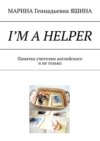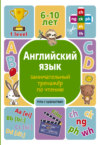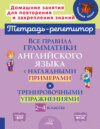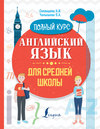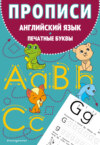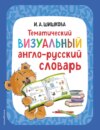Читать книгу: «The English Teachers», страница 6
Gary Krautkramer (GK) and Polina Pivovarova (PP)
Setting the scene: In school I never thought about the teachers having lives or wives or husbands. So often we only see one side of people and have to remind ourselves of the fact that they do have lives outside of work. The smiling young Russian-American couple sitting opposite me are a welcome reminder that teachers can and do find love. On the surface, they look very different. Gary with his dark hair and sharp features. Polina with her lighter hair and softer features. When they get talking, though, both speak with equal passion.
GK: I studied Linguistics and Sociology at university. I wanted to become a professor, but I got lost in studying languages and thought it might be a good idea to get a certification in teaching English to teach aboard. I was a big fan of travelling so it was a perfect mix for me. I got my certification and went to Costa Rica first, then South Korea and now here in Russia. I’ve been teaching for a couple of years and I really like it.
PP: I’m from Russia and I graduated here. I’ve been working as a teacher for more than three years. I basically did my best to educate myself to be a better professional and actually studying English.
RFDG: Polina, Russia seems like an obvious choice for you, but why Moscow in particular?
PP: My family moved here when I was 13 and I didn’t particularly like the idea of leaving my family and friends to go elsewhere. And Moscow is a capital city. There are more opportunities to find a job here and the salaries are better. I wouldn’t go back to my native town and work there.
RFDG: Gary, what about you? Why Russia and Moscow?
GK: I was teaching in South Korea for a good deal of money and I thought it was great because I could save up a lot and pay off my college debt, but I ran into some problems in terms of the work environment and housing situation. So, I decided to leave and cut my stay short by six months. I was offered a position with a school in Kazan before I went to live in South Korea, but I turned it down because I wasn’t sure I wanted to live in Kazan.
RFDG: Why not?
GK: It was a smaller city and I was hoping for something more like a big metropolis. When I suggested St Petersburg or Moscow, they explained only Kazan was available so I turned them down for South Korea. Six months later I decided to try another chain of schools and took a position there in Moscow.
RFDG: What made you choose teaching?
PP: I was actually going to become a philologist, but my language skills didn’t allow me to go into a linguistic university and being a teacher wasn’t a very popular profession. The competition for linguistics was higher than for teaching and I didn’t have enough points to go there. So I went into a teaching university and I found I liked it and had a lot of ideas for teaching. I saw a lot of bad teachers at university and a couple of good ones. I compared them and understood how not to teach and which direction to move in. I took it as a challenge and thought I could do it well.
RFDG: Who had a stronger influence, the bad role models or the good ones?
She laughs.
PP: The bad ones. I blame my German teacher for not using the right strategy to teach me German. It stopped me from going into the linguistic university. Had I known that they weren’t good, I might have chosen another one and I might have gotten into where I wanted to. So, I thought if I had this skill maybe I could change the world for someone and they could get into the right university!
RFDG: Gary, why teaching for you?
GK: I’ve been an activist for a long time. I was always focused primarily on the notion of deepening democracy. I joined lots of political groups and took part in some campaigning. I thought it would be possible to change the world, or at least my own country. But I noticed that when I worked for a third party campaign in the United States – it was for a guy called Ralph Nader – I would go door-to-door talking to people and they would say, “I agree with what he stands for, but it’s not possible to get him into office because no-one else will vote for him because they don’t believe it’s possible.”
The point is that I realised just campaigning isn’t going to change the system since people don’t understand how the system works and how to interact with other people. So, I thought that maybe it has to start from education and instead of going to protests I would learn how to teach. In the end I hope to start my own school and make changes that way by teaching people how to communicate better and understand the system in which they live.
RFDG: So, for you it’s not that you’ve arrived at the destination, it’s more like this is part of the way there on your journey?
GK: Well, I don’t think the journey ever really ends, but yes.
*
Daria Starova (DS)
Setting the scene: I conducted this interview with Daria while going through my annual battle with a chest infection which seems to happen like clockwork at this time in the Russian winter. She is sitting opposite me in a quiet teacher’s room on a Saturday afternoon while I struggle to breathe. An experienced teacher, she has a lot of things to share.
DS: I started teaching when I was in my second year at university. I did it just as way to earn some pocket money. I was at a linguistic university, but I was studying psychology. I had my first private student, then another couple and then I finished university and got an office job.
I was a manager in Great Britain and Northern Ireland for some language courses. I did some visa work and found programmes – mostly Masters – for people. After a year I got bored and left. The only thing I could do was teaching, so I got back to teaching and during that year I still had some students and I found more. Two years later I did CPE and two years after that I did my CELTA.
RFDG: So, teaching wasn’t the first choice?
DS: When I started teaching I was very scared. I was scared of children and their parents. But my first student’s parents recommended me and then more recommended me and I discovered I really like language. I like to explain it, I like to look at nuances and I still have this love for language, probably more than teaching. I never get bored listening to the same audio again and again. I really like listening to language.
RFDG: Where was university?
DS: It was Moscow Linguistic University, but because it was a linguistic university we probably had more language classes than psychology classes, so I learned English and French.
RFDG: So, Moscow was almost a natural choice. Have you ever thought about going anywhere else?
She pauses, searching back through history and thinking about it deeply.
DS: I have but not as a language teacher. Now I’m married and it wouldn’t be easy to go somewhere. And maybe I’m a little scared of going somewhere or teaching in a new environment and country. I haven’t travelled much, you see.
RFDG: If you hadn’t become a teacher, what would you have done?
DS: I don’t know. At one point I really believed I was meant to become a teacher, but then I did my CELTA and I understood that I’m not (laughs). Maybe there is something else for me because it seems that my brain needs more work than teaching. After the intensive month of CELTA I was exhausted, but I could only work with language and I felt my brain was hungry for something completely different, so I became a teacher. But maybe I’ll do something else in the future.
RFDG: Were you offered a job after CELTA by the same school?
DS: Actually, I asked for it. I came up to my trainer and asked if I could work there. He brought me to the Recruitment department and I began to work.
RFDG: Why did you pick that specific school?
DS: Because I prepared here for CPE* and I had two wonderful teachers. I really liked it and I think I have a kind of intuition for good teaching. I know when it’s done properly. When I came here I felt it was done properly, unlike my university. They won my trust here.
*Note: Cambridge Proficiency English is an exam that shows candidates have mastered English to an exceptional level.
RFDG: Is there a big contrast between teaching at university and where you work now?
DS: It’s huge. At university the atmosphere was completely different. We were expected to learn lots of things by heart, to work with texts and retell them. I don’t remember many free discussions. We didn’t even do much listening which was outrageous because when I started teaching we listened to all the audios in the books and we never did it at university. So, I had to work on my listening skills myself.
Of course our teachers spoke to us in English at university but it’s not the same when you listen to a variety of accents. And it wasn’t the communicative approach, it’s more like grammar translation.
The teacher’s attitude was, “We know everything and who are you!? You are stupid students who don’t remember 100 phrases by heart.” And they would say, “Oh, in my time, we would learn pages by heart and you can’t even learn 10 expressions.”
RFDG: Why does that attitude exist?
DS: I don’t know. I think it’s something to do with our school of thought. Maybe because they were from the Soviet Union and they didn’t communicate much with their colleagues. There was this kind of arrogance coming from teachers.
*
Leandri Butterworth (LB)
Setting the scene: The coffee shop is uncharacteristically empty on the afternoon we meet in the heart of Moscow. It’s not the only unusual occurrence. Leandri is rarely in this part of Moscow but has come in on her day off to pick up her pay. It’s a long journey but she speaks with the special lightness I’ve come to see as characteristic of the Cape Town accent. She wears black-rimmed glasses and her hair is a mass of lively curls. On the bare brick wall behind her is a faded map of the world.
LB: I started teaching in Cape Town after university in 2012 and worked for a year before doing my CELTA. I taught there for another year and then I came to Russia where I’ve been for three years now.
RFDG: Why did you want to get into teaching?
LB: Originally, when I was at university, I wanted to get into high school English teaching. I wanted to teach literature because I’ve always had a soft spot for it. I thought – like many people who go into the Arts do – that I would maybe do ESL for a year or two and pay off my debts. Then when I got my first ESL job, by day two I realised that was what I wanted to do because I felt it was really good knowing that I was helping people, rather than teaching Shakespeare to kids who couldn’t care less.
RFDG: Is that a common problem in South African high school education?
LB: I think it’s a common problem in high school education everywhere when I listen to what people have to say about it. The way English is dealt with in high school, there’s not a lot of freedom about what you can and can’t say. I remember we were doing a poem and my teacher was explaining it. I had an observation about how I had interpreted it and her answer was, “No. That’s wrong. That’s not in the syllabus.” And then she moved on. I got a little disillusioned by that.
RFDG: Why did you come to Moscow specifically?
LB: At school English and History were my favourite subjects and they were what I studied at university. In grade 11 in English we did Animal Farm and in History we did Soviet Russia, and I remember our teachers made us watch Dr Zhivago. I fell in love with the idea of the country and I knew if I was going to go abroad I wouldn’t go to the East. There’s just never been any reason for me to. So, I think if I was going to go abroad and teach it was always going to be Russia because I kind of have a soft spot for the culture.
RFDG: If you hadn’t become a teacher, what do you think you would have done?
LB: I never gave it any thought. Being a teacher was always it. I don’t think I had any back-up plans.
*
Irina Grekova (IG)
Setting the scene: We sit in a smallish classroom on the top floor of a six-story building in Tverskaya Street just up from the Kremlin. It’s a cold day in early spring and the sky is clear. Nonetheless, I have to open a window since the central heating is on full blast. Irina sits opposite me, a woman filled with an enthusiasm which is infectious. She smiles broadly as she talks from decades of experience, every inch the confident and compassionate teacher trainer. There’s a touch of strangeness about this situation. A year ago she interviewed me to create listening material for her students. Now the tables have turned.
IG: I graduated in 1986 from Moscow Pedagogical University as an English and German teacher. I worked in two schools teaching English and German. I had more German classes. It was an ordinary school. I worked there for three years before the Perestroika. When it started, I joined commercial English courses teaching adults. I never went back to school. I met some interesting people at these courses. Somehow, I became popular because schools I had previously worked for started calling me back.
I was invited to teach teachers at the Chemistry department of MSU. Most of them were PhDs and professors. They asked me to design a course for them on the basis of Beatles’ songs, which I did. I spent a year teaching them, maybe two.
After this course at MSU, I did a very interesting teacher development course on Suggestopedia. It’s an intensive method of teaching and learning English designed by Georgy Lozanov. This course was two months long. Then I was invited to work for the centre and worked there for four years.
At some point in my life I stopped teaching and I worked for different businesses. For example, I worked for an investment company “Freemasons Capital” and a travel agency organising hiking tours in the Caucasus.
But then an interesting thing happened. A friend of mine gave me a call and suggested doing a training arranged by an Israeli company using a multimedia programme called “English Discoveries.” It was a free training.
After doing it I started looking for a teaching job. An interesting coincidence occurred. Somebody saw my work on “English Discoveries” and gave me a call. It happened to be “Lingvo Ru”, one of BKC’s schools. Working there was interesting because the school director asked me if I could design a speaking club programme for all levels for one month. I said yes and that’s how I started my cooperation with “Lingvo Ru.”
I did CELTA in 1999 and DELTA in 2001. After that I became an ADOS for satellite schools*, the head of the teacher training department.
*Note: “satellite schools” usually refer to locations outside the city centre.
RFDG: That’s a long career of teaching. Why did you decide teaching was the best career for you in the first place?
IG: This might sound strange, but I never had any other ideas. When I made my first career choice – I think I was 10 – I lived in Cuba at that time. I had a best friend. We both chose a career that we would pursue later. I don’t know why I liked English. I spoke Spanish and I lived in Cuba for six years. My best friend wanted to become a doctor and she is a doctor now.
Maybe it’s because my parents were teachers. My father was a Physics teacher, but he worked as a school principal all his life. My mom taught Russian and Literature. Many conversations at home were about school.
RFDG: But you also studied German. Did English come as a natural, unconscious choice?
IG: At some point, when I was unemployed, I decided to try teaching Russian as a foreign language. (I got a second education at Pushkin State University in Moscow.) But I didn’t enjoy it. I had to abandon my background. I had to abandon English completely which was a disaster. I was teaching native speakers and I wasn’t allowed to speak English.
I also had to think about music, poetry and cultural background, so I would feel less in context with all these realia. And it wasn’t as appealing as what I’m doing with English.
RFDG: You grew up in Moscow and got all your qualifications here, but you also lived in different countries. What made you choose Moscow as the place where you want to teach?
IG: The answer is simple. Originally, I come from a small town in the Moscow region. That’s where I taught English at school. I’m very sociable. I had a lot of friends there, I sang in a choir. Soon people started asking me about doing a course at MSU and whether I would move to Moscow. They made attempts to get me move, but they failed. These people had connections, but they didn’t help.
I ran an unofficial course with my friends and acquaintances, about 30 people, and I realised that there were no other opportunities in a small town to run something like this on a regular basis and for professional development. There are more opportunities in Moscow.
*
Varvara Tyurina (VT)
Setting the scene: We meet on a Saturday after a long morning of teaching TKT for me and teaching intensive classes for her. These classes can last for four hours or more. I’m still recovering from my chest infection but Varvara is very lively, much like her answers, as we sit in a teacher’s room crammed with books but deserted by teachers. It’s quiet and somewhat dark, but this means I can focus clearly on everything she has to say.
VT: I studied in an English school where half of the lessons were in English. That took 11 years. Then I went to Moscow City Teacher Training University where I got a Bachelor’s Degree in Translation and Linguistic studies. I went on to do a Masters in Linguistics and Cross Cultural Communication, and then I got my CELTA in Edinburgh in 2016.
RFDG: That’s a very logical progression though languages, but why did you choose to go into teaching?
VT: I tried alternatives. I was a translator and an interpreter at different events. There was a grand opening of a museum in Moscow and I worked there, but I didn’t enjoy it much. It didn’t really match my personality because in translation you just need to make sure that communication comes through and that’s it. You need to cover your personality as much as possible. That goes strongly against my own behaviour. I’m very emotional and expressive. I think that’s why it wasn’t for me. I can’t sit down and work with paper at home. I want to communicate with people and share my knowledge with them.
RFDG: You still stuck with languages. Was there a purpose behind doing all this work with languages beforehand?
VT: Absolutely, yes. The overall tendency is that most Russians don’t speak English very well. I’d even say the majority don’t speak English at all. So, even if you want to teach languages it’s wise to learn it first. I know from my experience and that of the people around me that translation teaches you more about the language than teaching does. My friends who graduated with teaching degrees knew a lot about how to teach English, but their level was very low which doesn’t make sense to me. I thought it would be reasonable to learn as much as I could first and then move to teaching it.
RFDG: Surely this choice wasn’t at the school level. Was it your parents’ decision to send you to such a school?
VT: Yes. It was my mum’s decision. It was back in the 90s when everything was changing. Not many people thought about English at that time, but my mum thought English would become a very important skill so it was important to invest in it. She put every effort into helping me get into that school. There was an exam I had to sit when I was five. It was my first exam, actually.
RFDG: That must have been quite pressuring.
VT: Yes it was, but I remember being very passionate about learning. I actually wanted to study before I went. It was difficult to pass the exam but I was eager to do it.
RFDG: Do you think your mum was right?
VT: I absolutely think so, because English has opened so many doors for me. That’s why I teach it, I want more people to have these opportunities.
RFDG: Why Moscow?
VT: Well, I’m still thinking of teaching in China. I would love to teach in Europe, but due to visa regulations the chances are very low, unfortunately. I’d be very happy to go but I just don’t see a way to do this so far. Every single job I come across says, “We are looking for candidates with European citizenship and we are not offering any work visas.” At the same time, I’m pretty happy with working in Moscow. There are so many places where you can work as a teacher or a trainer and I don’t know of any other cities which can offer that much which are within my reach.
*
Начислим
+7
Покупайте книги и получайте бонусы в Литрес, Читай-городе и Буквоеде.
Участвовать в бонусной программе


